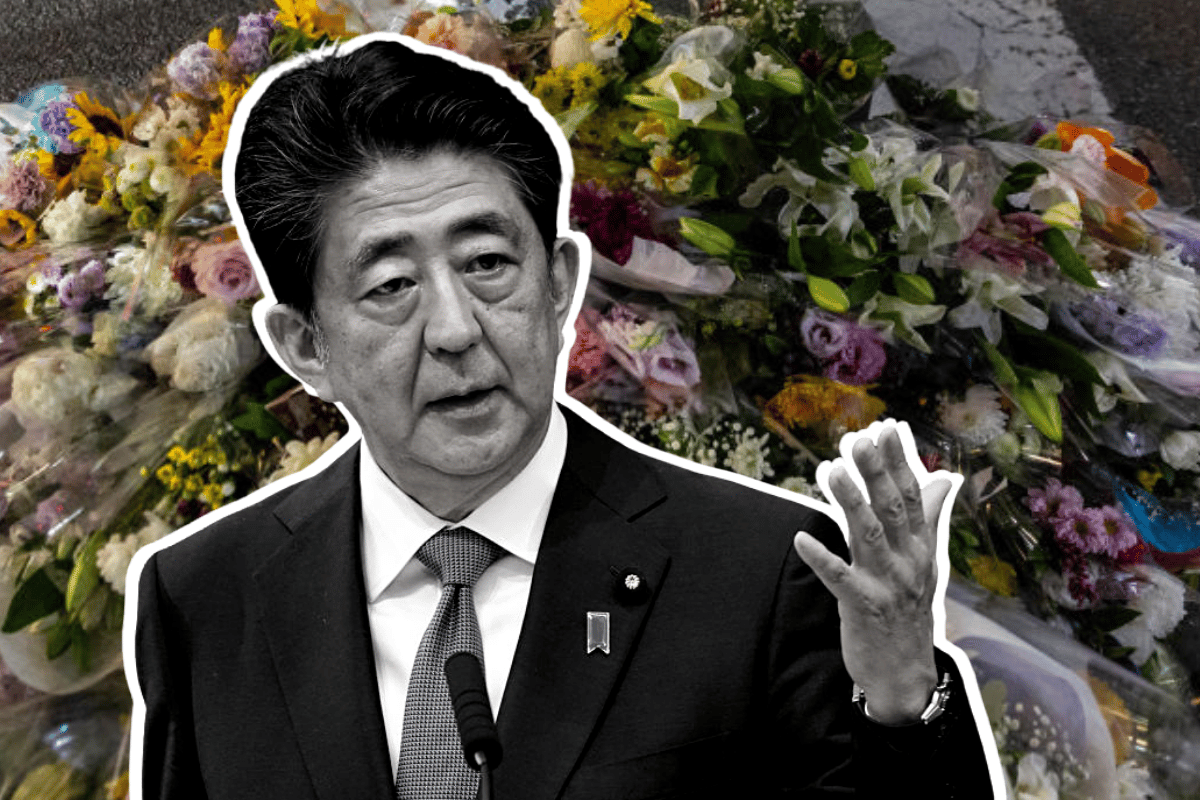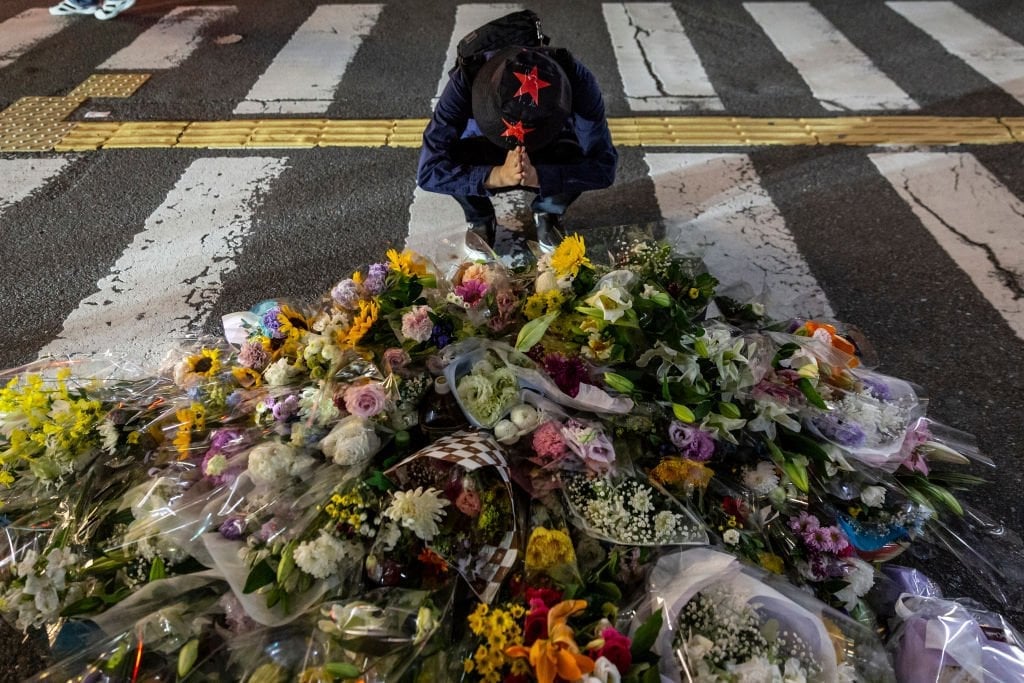
Japan's longest-serving premier, former Prime Minister Shinzo Abe was fatally shot from behind while giving a campaign speech in the city of Nara on Friday.
The shooting suspect was arrested by police, and confessed to shooting Abe.
Here's what you need to know.
Watch: Former Prime Minister Shinzo Abe was fatally shot while campaigning. Post continues below.
What exactly happened?
Japan's former Prime Minister Shinzo Abe was fatally shot while campaigning in the city of Nara at 11.30am local time, and was pronounced dead at 5.03 pm.
Shots were heard and a white puff of smoke was seen as Abe - who was still a force in Japanese politics - made a stump speech for a Sunday upper house election outside a train station in the western city, some 480 kilometres from the capital Tokyo, Japanese broadcaster NHK reported.
An NHK reporter on the scene said they heard two consecutive bangs during Abe's speech.
Police then arrested a male suspect at the scene who confessed to the shooting.
The gunman has been identified as 41-year-old Tetsuya Yamagami, who is unemployed, and a former member of the Japanese navy.

